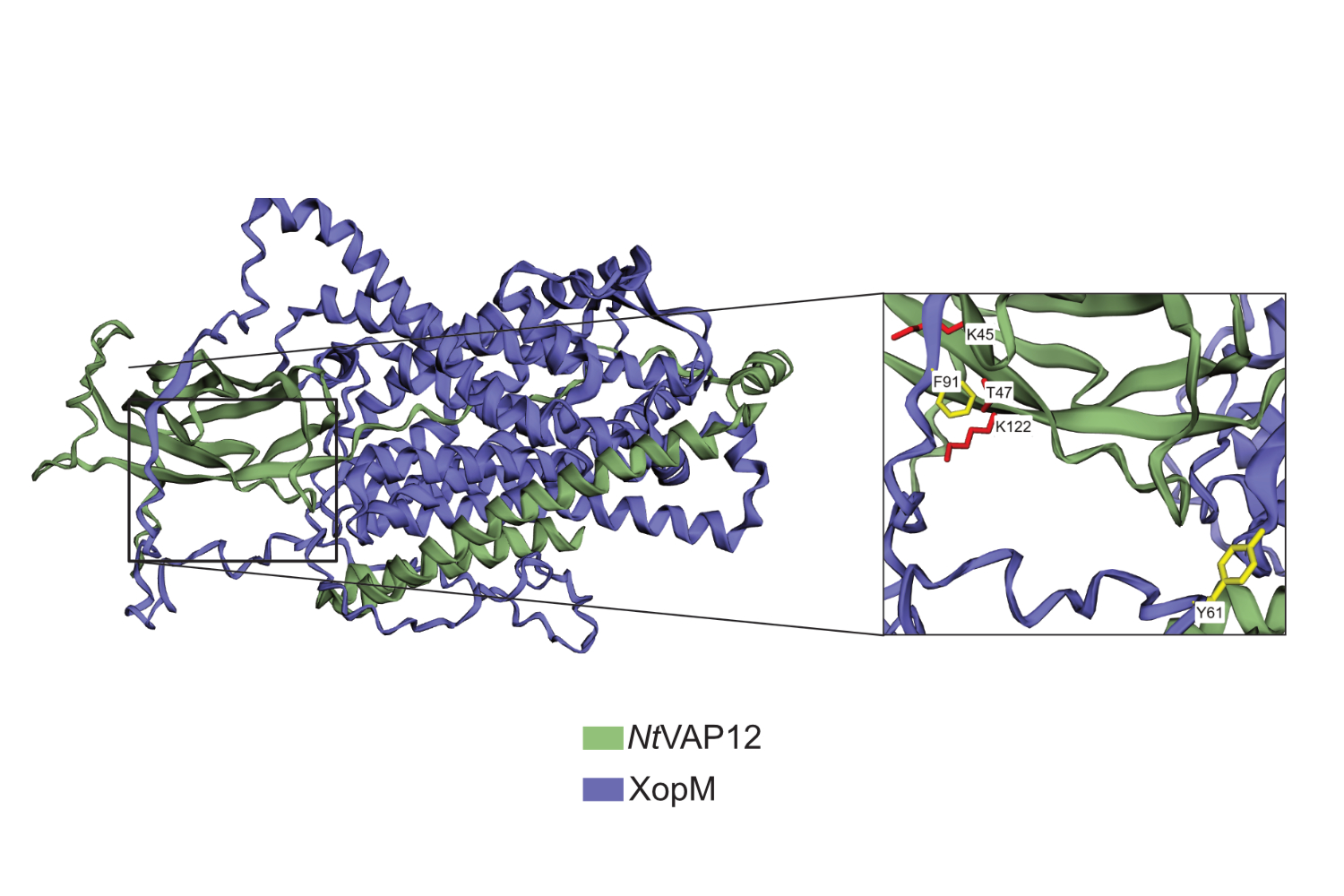Of plants and pathogens
Successful doctorate for IGZ doctoral student Charlotte Brinkmann
Due to their sessile lifestyle, plants are constantly exposed to pathogens. They have a multi-layered immune system to defend themselves. However, pathogens such as the bacterial strain Xanthomonas campestris pv. vesicatoria (Xcv), which causes bacterial spot disease in tomatoes and peppers, have developed mechanisms to circumvent these defences. This also has an impact on humans, as the plants infested by Xanthomonas die and crops fail.
Charlotte Brinkmann started her doctorate in June 2019 in the research group of Prof. Dr Frederik Börnke at the IGZ (former Research Group ‘Plant Metabolism’) and successfully completed her doctorate at the University of Potsdam last month. The dissertation was second supervised by Prof. Dr Philip Wigge (head of the Programme Area ‘Plant Adaptation’) and mentored by Dr Katja Witzel (research group ‘Plant-Microbe System’). The research work was part of the DFG-funded project ‘Functional Characterisation of Bacterial Type III Effectors in Plants’ and is entitled ‘Molecular Characterisation of the Xanthomonas Type III Effector XopM’.
Bacterial type III effector proteins are channelled into the host plant and contribute to suppressing the plant's immune response. In her work, the molecular biologist was able to show that XopM promotes the growth of a non-pathogenic bacterial strain in Arabidopsis model plants. It thus weakens the first defence barrier, the ‘pattern-triggered immunity’ (PTI) of the plant. Brinkmann was also able to prove that XopM suppresses the formation of reactive oxygen species, one of the fastest PTI responses.
A key result of the research was the identification of the interaction of XopM with proteins of the host plant tomato and the model plants tobacco and Arabidopsis. The interaction of the bacterial effector protein with the plant VAP12 proteins (‘vesicle-associated membrane protein (VAMP)-associated protein 1-2’) takes place via the ‘major sperm protein’ (MSP) domain of VAP12. Amino acids of the host protein that are crucial for the interaction were identified. In XopM, two so-called FFAT amino acid motifs were identified as essential, which frequently occur in proteins that interact with VAPs.
Other interaction partners of XopM were proteins that are responsible for vesicle transport, among other things, and whose function as host cells for bacterial type III effector proteins is already known. Vesicle transport is an important mechanism for delivering proteins to the site in the cell where they can perform their functions.
Although further research is needed to understand the exact mechanism of virulence of XopM, this study contributes to a better understanding of the complex interactions between pathogens and plant immune systems. In the long term, the knowledge gained could contribute to the development of disease-resistant tomato and pepper plants.
Charlotte Brinkmann was a PhD representative at the IGZ and is committed to the interests of doctoral students. In addition, she has actively campaigned for the visibility of LGBTQ+ and women* in the sciences and has been co-organiser of the annual Soapbox Science event during Berlin Science Week since 2021.
We congratulate Dr Charlotte Brinkmann on completing her doctorate and wish her all the best for her professional future!
Further information
Brinkmann, C.; Bortlik, J.; Raffeiner, M.; Üstün, S.; Börnke, F. (2024) XopM, a FFAT motif containing type-III effector protein from Xanthomonas, suppresses PTI responses at the plant plasma membrane. bioRxiv 2024.03.06.583702; doi: https://doi.org/10.1101/2024.03.06.583702 (Pre-Print)
Project description "Functional analysis of bacterial type III effector proteins in plants"

